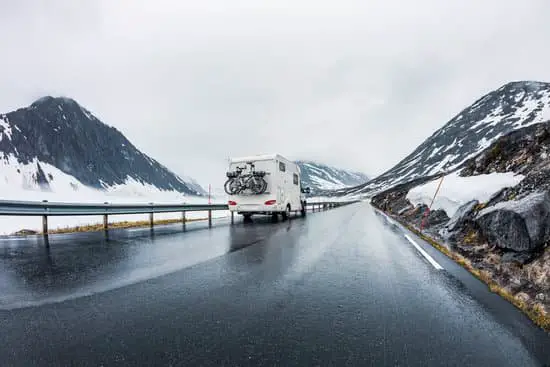What Is The Freezing Point Of Rv Antifreeze? Antifreeze with a freeze point of -50°F has a freeze point of +20°F, while antifreeze with a freeze point of -100°F has a freeze point of roughly -20°F. As the temperature drops, however, the solution solidifies and expands, placing strain on the pipes and perhaps causing damage.
What is the temperature at which RV antifreeze can freeze?
You can buy RV antifreeze in two temperatures: minus 50°F and minus 100°F freeze burst. The minus 50 degrees F antifreeze has an ice point of +12°F. However, it can freeze at full strength at +12°F, but freezes at minus 50°F.
Antifreeze is supposed to be used to freeze
There’s no need to be worried. Propylene glycol is the antifreeze for RVs. It won’t freeze solid. It will freeze but it will only be a slushy consistency.
Is antifreeze able to expand after being frozen?
It will not expand when frozen, protecting against freeze damage. It has nothing to do with the antifreeze. It will become slushy when it falls below freezing. It’s also known as RV antifreeze.
What is the Freezing point of Rv Antifreeze in terms of freezing? Similar Questions
How cold should it be to winterize?
Even if your RV isn’t being used, you should winterize it. Your bottom can’t be heated or insulated. Boondocking means that your furnace can only be run at certain times.
Are there any adverse effects of antifreeze on the environment
While RV antifreeze propylene glycol is safer than automotive antifreeze, it still contains dangerous heavy metals.
RV antifreeze can be toxic even though it is not toxic.
Is antifreeze’s effectiveness decreasing?
Antifreeze is not usually bad.
It is important to seal it correctly so that it can last between 1 and 5 years. You can still use the item during this time.
This is a great way for your RV to stay in top condition. You can also maintain your house’s pipes.
What is the safety of antifreeze?
- PROPYLENE GLYCOL – This type of antifreeze is only available in RV shops.
- It is safest to use for all types and makes RV plumbing more durable.
- This antifreeze doesn’t cause water to deteriorate, and it is not flammable.
- Propylene glycol is a lubricant that will prolong the life of your toilets and faucets.
What’s the difference between antifreeze & antifreeze?
Use. Both RV antifreeze and car antifreeze are not meant for the same purpose. Car antifreeze is used to cool the engine. RV antifreeze can also be used for plumbing and emergency ice removal.
Is it possible for antifreeze to be tested?
You can test the pink liquid by freezing it and then seeing if it turns to ice. It’s safe to use if it doesn’t freeze or stays as a slush. It is important to avoid drinking it. This is the story of how long the RV-antifreeze will stay good.
What can I do to prevent my RV’s water line from freezing?
To prevent freezing, you can insulate your RV’s water line. Wrap it in heat tape. To insulate the hose, cover it the whole length. You can also keep it from freezing by running the faucet.
How do I keep my water warm?
These tips can help you keep your water circulating through winter.
- Apply heat tape to pipes or hoses.
- Heat your internal plumbing.
- The internal freshwater tank can be used.
- Use a space heater.
- Add antifreeze
- Take care of your tanks
How much RV antifreeze do I need to winterize my car?
Depending on your RV’s size and configuration, you may need between 2 and 3.
How do you winterize your camper to make it comfortable?
- There are several options available for protecting them: solar blankets or bubble insulation.
- To increase heat, line your windows with thick thermal curtains.
- Sealing your RV’s windows and doors with RV sealant is a smart idea.
How do you winterize your camper for 4 seasons?
Is RV antifreeze a cause of skin irritation?
The skin can become irritated by ethylene glycol, but it’s not dangerous. You should wash skin exposed to EG by washing it with soapy warm water.
Can antifreeze be spread on the ground?
Do not flush antifreeze down the drain. Antifreeze should not be poured on the ground. Antifreeze that has been used, contaminated, or is not in good condition should be kept out of reach.






